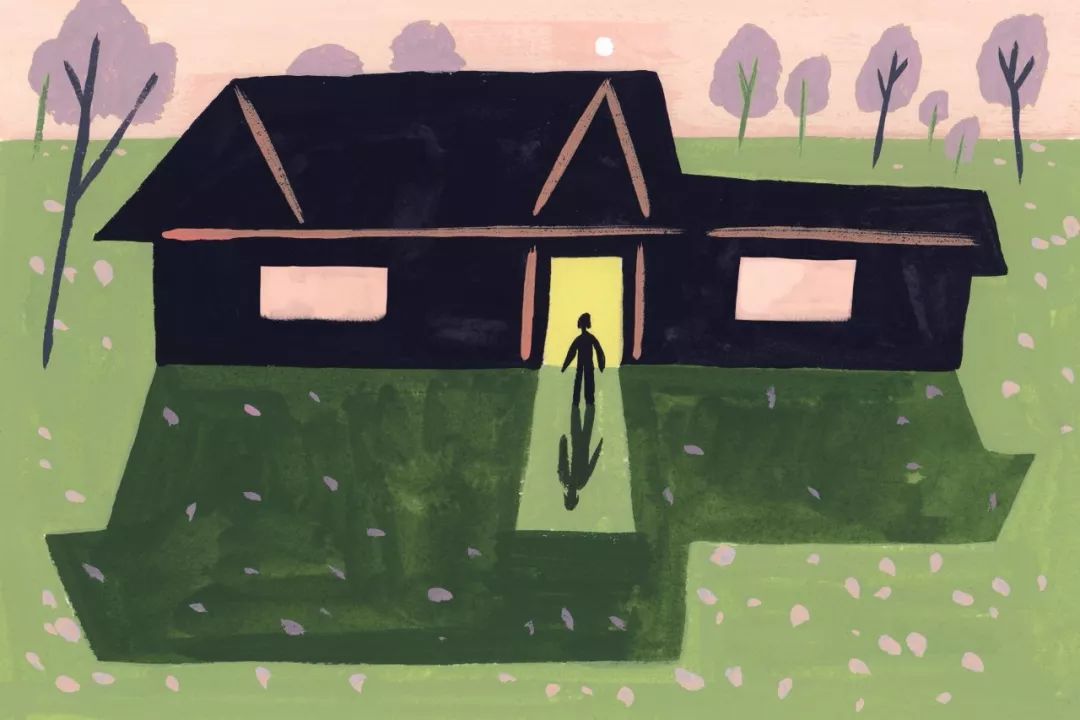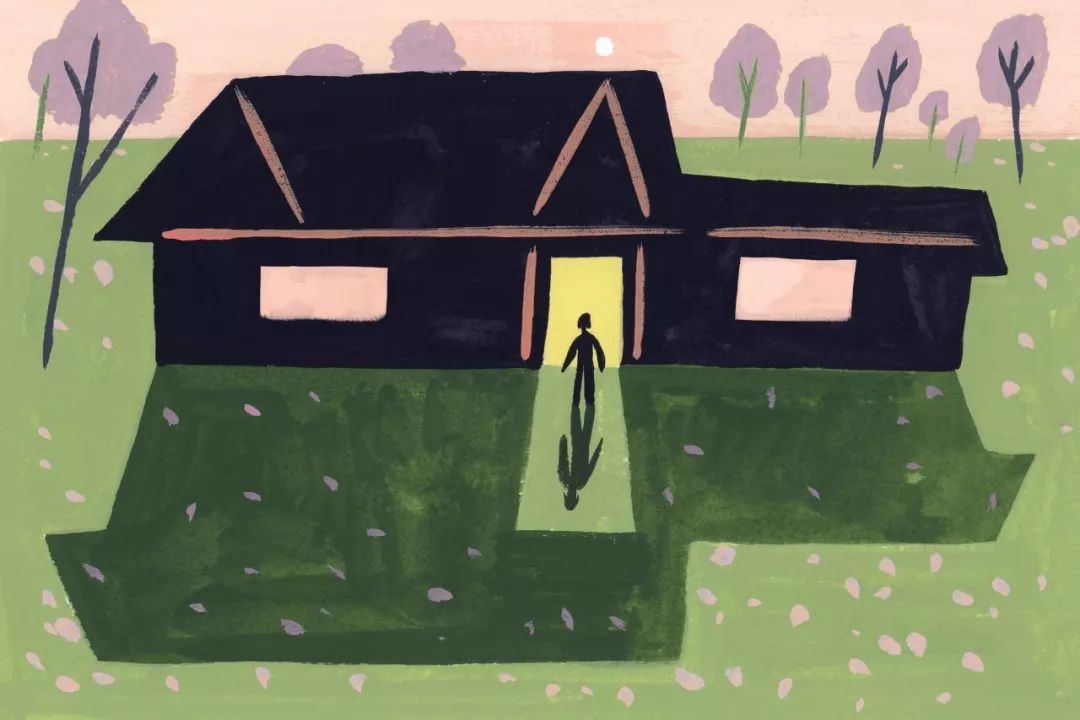作者是一位童年在大陆,后来全家搬去美国的华裔。目前是耶鲁大四在读。
所以家庭的氛围,家人之间的相处沟通方式,看起来都会很熟悉。
作者印象最深的一句话,是父亲说,“别担心学费。”
不知道大家印象中和父母有关学习的沟通,最促动的是哪句话。
我有一句话,觉得是特别感谢能从父母口中听到的。
“没事,下次会考好的。”
因为从小,我自己是想学的,所以听到这个还挺减压的。
不过也有可能是他们怕我烦他们
For an Asian-American Family, the Cost of Education

原作者:Jingjing Xiao
原刊于:New York Times
My parents bought a foreclosed farmhouse during the 2008 recession. For a decade afterward, we made hourlong weekly trips from Kentucky, where we lived, to the farm, which is in Indiana. My parents spent long days there renovating the termite-ridden 1970s farmhouse while I played in the fields or read in the car. I was in middle school when they bought it, too young to question their motivation for spending weekends toiling over a house in the middle of nowhere.
I remained oblivious to its purpose until last summer, when I began applying to graduate school and found that the M.B.A. programs I hoped to attend at Harvard and Stanford would cost more than $100,000 per year.
“Don’t worry about paying for it,” my father said in Chinese. “We’ve prepared a house — for you.”
The implication — which he later confirmed — was that he and my mother would sell their home and move to the farm so they could finance my graduate education.
My family is Chinese-American. Our race has become synonymous with educational achievement through archetypal icons like the Tiger Mom or popular memes like the High Expectations Asian Father. These stereotypes may be offensive, but there is a certain validity to them. In 2019, the National Assessment of Educational Progress found that Asians had higher GPAs, and Inside Higher Ed reports that the average Asian student scores at least two points higher on the ACT or 100 points higher on the SAT than students of other races.
This academic success is not necessarily reflected in critical metrics, like admission to elite colleges. The college admissions scandal has demonstrated how rich and unethical parents can fake criteria from exam scores to sports accolades. Even legitimate academic achievement can be ineffective, as happened in 2018, when Asian-Americans had the lowest acceptance rate despite holding the highest SAT average in Harvard’s admitted students pool. A lawsuit, in which a decision is expected soon, accuses Harvard of setting a quota on admissions for Asian-American applicants and holding them to a higher standard than other races.
While Asians are divided over the Harvard case, our families unite through our concern about the outcomes of these cases. They not only indicate how the courts will treat minorities like us. The possibility of gaming the admissions system also destabilizes the elevated position these elite institutions of higher education hold in American society, and nullifies the extraordinary, legitimate investment of money, labor and emotional energy in education by many families, Asian or otherwise.
The Asian cultural emphasis on educational attainment has financial consequences. A 2017 report by LendEDU, which surveyed more than 1,400 college graduates, found that among black, white, Hispanic and Asian families, Asians gave their children the most financial support in paying for college.
The report found that 70 percent of Asian parents provide financial assistance for higher education, with a quarter paying for half or all of college, compared with about 50 percent of parents of other races.
My own experience in a solidly middle-class family also suggests that Asians pay for college not with extraordinary wealth but with extraordinary measures, like my parents’ eight-year renovation project. In many cases, Asian parents expect not only to pay for higher education, but also to budget the cost into their finances decades in advance.
I remember little of my life at age 4, but I have one distinct memory: a shopping mall with a well-lit plaza. My parents would take me there for a reading class every Sunday, and then sit through the course with me. At that time we still lived in Beijing, where two-day weekends had not yet been adopted, so my parents sacrificed their one free day to accompany me to class.
When I was in high school, my mother would wake at 6 a.m. to make my breakfast, and sometimes remain at work until 6 p.m. so she could drive me home after I finished my extracurriculars.
My father, meanwhile, remained on call for my math questions and engineering projects. He spent weekends helping me build catapults for Science Olympiad, and driving me to and from science fairs around the state so I could present my research. While I spent the entirety of my primary education in free public schools, my parents had invested thousands of hours of labor in me before I was ever accepted to college.
In the summer of my junior year of high school in 2013, I attended MIT’s Research Science Institute, a summer program for the best scientists my age. The program’s acceptance rate was about 3 percent, lower than that of Yale, Harvard or Stanford. In our class of less than 90, two have already died. A documentary, “Looking for Luke,” was filmed about the life and suicide of one of my classmates, to raise awareness of depression, particularly in an Asian-American context.
In my experience, the pressure that Asian families exert on their children takes the form not of actively demanding high marks but of quiet sacrifice in support of our education. While my parents insist my health comes above all else, I would often miss a few meals for class, or lose a few nights of sleep for an assignment in college, because these losses seem small when I know all that they have given for my education.
I feel incredibly fortunate that my parents saved me the worry of how to finance graduate school, but in doing so they have replaced the stress of paying off debt with another sort of pressure. Debt feels different when I owe my parents instead of some faceless corporation. I notice how their hair has grayed, and they have grown old in the process of supporting me. Then, I am consumed by guilt.
Our homes are not only the settings for our most cherished memories, but also the products of years of care, labor and investment. I have watched my parents pour their lives into their farmhouse over the course of the last decade. I am driven to work by the knowledge that they are prepared to sell the house I grew up in to pay for my graduate school, and that if I failed to earn scholarships it would be the financial equivalent of burning down my parents’ home.
LAB + 外刊年报

本文源自微信公众号:LABcircle
